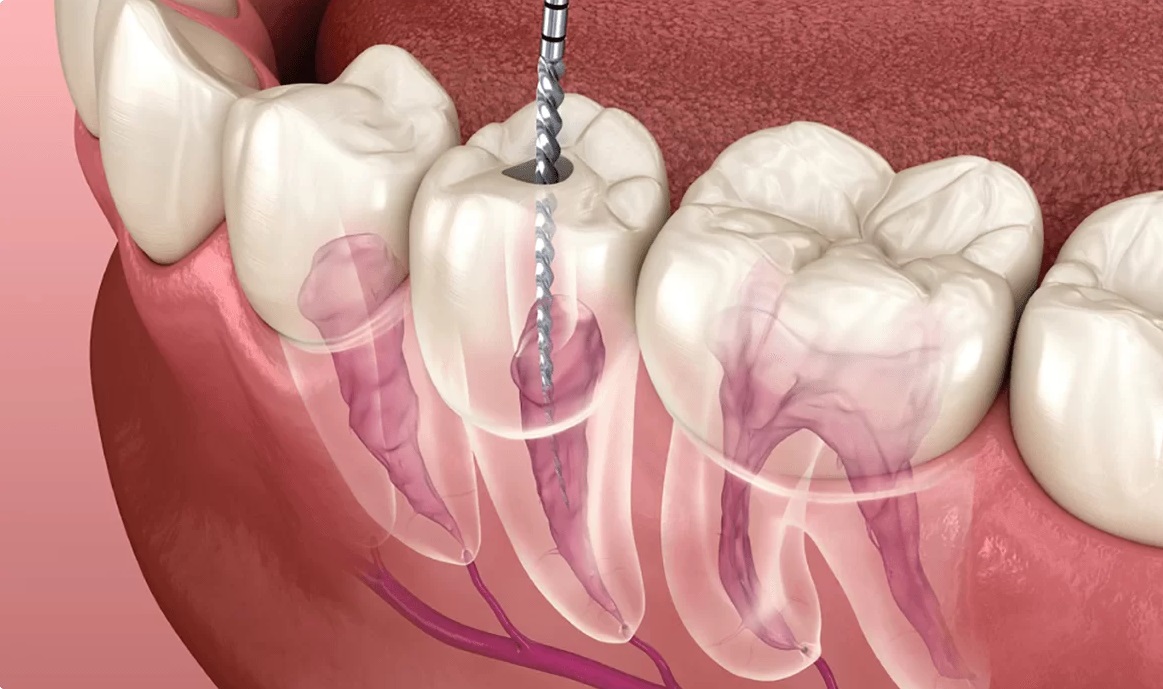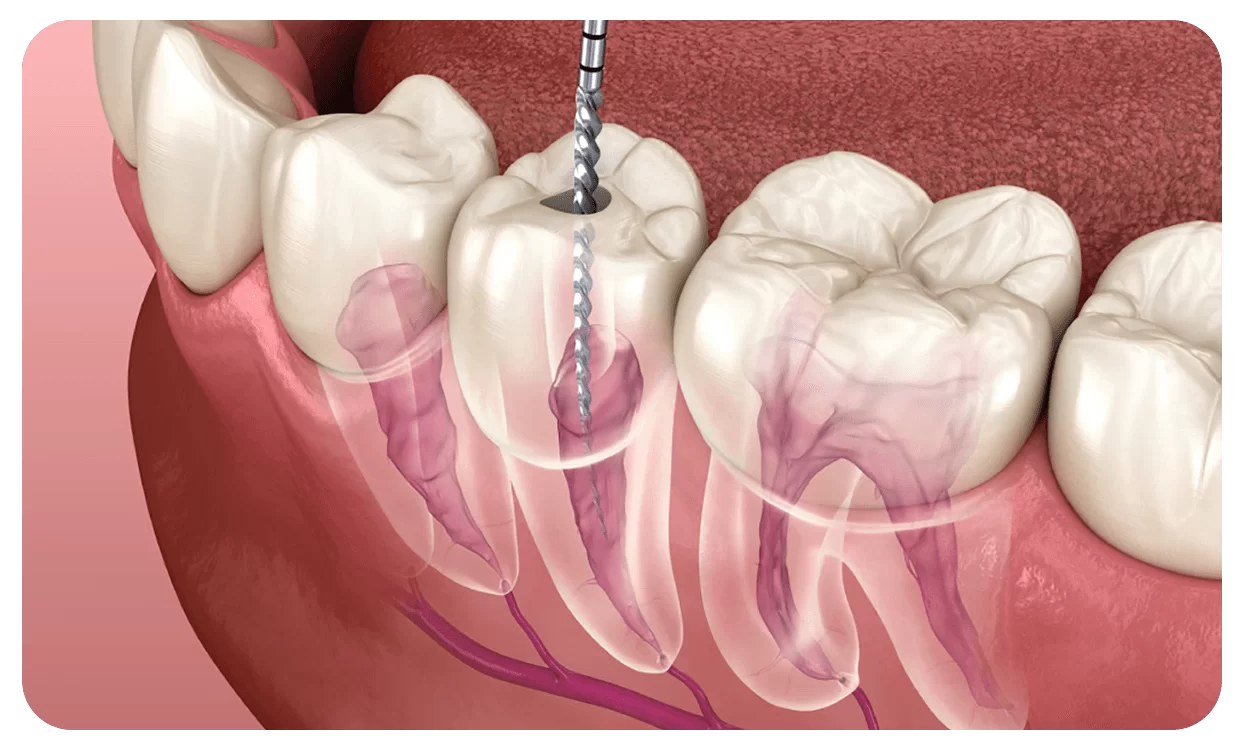Root Canal Treatment in Abu Dhabi
Elyzee Hospital is one of the best hospital centers in Abu Dhabi, specializing in Root Canal Treatment.

Future of Root Canal Treatment. Elyzee - Abu Dhabi
The preservation of severely damaged or infected teeth can be achieved through a specialized dental procedure known as endodontic therapy or more commonly referred to as root canal treatment. By effectively removing and clearing out any infected pulp residing within the tooth’s intricate network of canals. Dentists ensure thorough cleaning and disinfection prior to sealing it shut securely – thus thwarting any chances of further infections taking place. This blog aims at unraveling all pertinent details revolving around root canal treatment. We will discuss its benefits identify the best candidates for this procedure explain how to consult with a dentist about it outline the necessary preparation beforehand describe what happens during the actual procedure go over what to expect during the post procedure recovery stage highlight the final result that can be achieved through this treatment and wrap up with a Q&A section where common concerns are addressed.
The Benefits of Root Canal Treatment
The primary benefit of root canal treatment is the preservation of a natural tooth that would otherwise require extraction. The removal of the infected pulp by a dentist can effectively save the tooth and provide relief from the pain and discomfort caused by dental infections. Moreover, undergoing root canal treatment also serves as a preventive measure against the spread of infection to nearby teeth, gums and jawbone subsequently lowering the potential for more serious complications. Additionally, preserving the natural tooth helps maintain proper chewing function, preserves the alignment of surrounding teeth, and restores the appearance and confidence of the patient’s smile.
The Best Candidate for Root Canal Treatment
The best candidates for root canal treatment are individuals who have a tooth with a damaged or infected pulp. Root canal treatment may be required for several reasons, such as deep decay repeated dental procedures on the same tooth, a crack or chip in the tooth or trauma. It is essential to address these issues promptly to prevent further complications. If you experience severe toothache. Prolonged sensitivity to hot or cold temperatures, swelling and tenderness in the gums. Or discoloration of the tooth. It may be an indication that root canal treatment is necessary. To determine the best course of action for your tooths condition. It is advisable to schedule a consultation with a dentist who can evaluate the situation and recommend appropriate solutions.

Consultation with the Doctor and Preparation for the Procedure
When you go for a consultation regarding root canal treatment. The dentist will carefully examine the affected tooth and may request X rays to accurately assess the extent of the infection. This examination is crucial in determining the most appropriate treatment plan. During this consultation your dentist will thoroughly explain the procedure detailing its advantages, potential risks, and alternative options. If it is deemed necessary to proceed with root canal treatment. Your dentist will also provide you with instructions on how to prepare for this important procedure. This may include fasting requirements if general anesthesia will be used or guidelines on taking prescribed medications. It is crucial to communicate any allergies, medical conditions, or medications you are currently taking to ensure the procedure is safe and effective.
What's Happening During the Procedure
Root canal treatment is usually performed under local anesthesia to ensure your comfort throughout the procedure. Once the anesthesia takes effect, your dentist will create a small access opening in the tooth’s crown to reach the infected pulp within the root canal system. The dentist will carefully remove the infected pulp and clean the canals using specialized tools. The canals are then shaped to facilitate filling and sealing. In some cases, medication may be placed inside the canals to eliminate any remaining bacteria. Finally, the canals are filled with a biocompatible material called gutta-percha and sealed to prevent recontamination. In most situations, a temporary filling is placed to protect the tooth until a permanent restoration, such as a dental crown, can be placed.
After the Procedure and Recovery
After root canal treatment, it is common to experience mild discomfort and sensitivity in the treated tooth and surrounding tissues. To help ease any discomfort after your dental procedure. Your dentist may suggest pain medication or over the counter pain relievers. It is crucial to adhere to all of the post operative instructions given by your dentist, which may involve avoiding hard or chewy foods and maintaining good oral hygiene. In some cases, a follow-up appointment will be scheduled to monitor the healing process and discuss the placement of a dental crown or other restoration to protect and strengthen the treated tooth.
The Final Result
The final result of root canal treatment is a preserved natural tooth that is free from infection and pain. With proper care, including regular dental visits and good oral hygiene practices, the treated tooth can last a lifetime. The restoration placed on the tooth, such as a dental crown, will restore its strength and functionality, allowing you to bite and chew comfortably. The appearance of the treated tooth will also be improved, ensuring a confident smile.
Conclusion
Root canal treatment is a highly effective procedure for saving a tooth that is severely damaged or infected. By removing the infected pulp and sealing the root canal, the dentist can alleviate pain, prevent further infection, and preserve the natural tooth. If you are currently experiencing symptoms of a dental infection or if your dentist has recommended root canal treatment it would be wise to seek their guidance and discuss the available options. The procedure itself has the potential to restore your oral health, alleviate any discomfort you may be experiencing as well as aid in preserving a healthy and confident smile.

FAQs
Root canal treatment is carried out using local anesthesia to guarantee a painless procedure. Although some mild discomfort and sensitivity may be encountered afterwards. This can be effectively addressed with the use of pain medication. And typically diminishes within a few days.
Root canal treatment is carried out using local anesthesia to guarantee a painless procedure. Although some mild discomfort and sensitivity may be encountered afterwards. This can be effectively addressed with the use of pain medication. And typically diminishes within a few days.
Root canal treatment, like any other dental procedure. Carries potential risks and complications. These include the possibility of infection, instrument fracture, or incomplete removal of infected tissue.
Given that root canal treatment generally involves the use of local anesthesia. Individuals can typically manage driving themselves home after the procedure without any issues. However, If sedation or general anesthesia are administered instead. It would be prudent to make appropriate plans so that someone else can take care of driving responsibilities and ensure your journey back home goes smoothly and securely.
The period of recovery following a root canal treatment typically spans just a few days. It is crucial to adhere to the instructions provided by your dentist concerning pain control, oral cleanliness, and any dietary limitations that may be suggested during this period.
When root canal treatment is delayed or avoided it can result in a more severe infection, heightened pain, and even the possibility of losing the affected tooth. To prevent any further complications it is crucial to promptly address any dental issues that may arise. If your dentist suggests root canal treatment as a solution. It is wise to heed their advice for the sake of your oral health.
Make An Appointment

